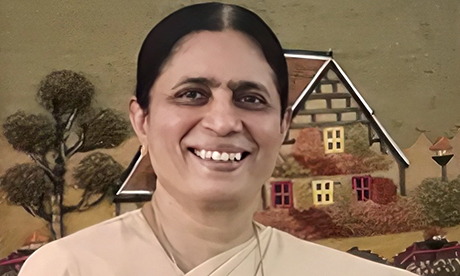Religious sisters, brothers and priests in India are lazy missionaries with some addicted to alcohol and social media.
The candid observations were made in a recent interview with Global Sisters Report, by Apostolic Carmel sister, Maria Nirmalini.
Nirmalini is the President of the Conference of Religious India and she spoke about her observations of the current state of religious life in India.
According to Nirmalini, she has seen a decline in passion and dedication among religious men and women in India.
“I have observed a decline in the passion and dedication among them compared to our earlier missionaries, who were ready to die for their faith and mission.
“Today, many prefer to confine themselves to their comfort zones or escape from criticism by religious fanatics.
“The pandemic has created many lazy missionaries, and some even got addicted to alcohol and social media,” observed Nirmalini.
While laziness is more apparent among men, she said religious women are not exempt.
Nirmalini also spoke about the hierarchical model of the Church in India, which she believes needs to change.
“At international meetings, people, irrespective of their status in the hierarchy, sit around the table and discuss things as equals. Here in India, we still follow some protocols based on hierarchies.”
Suggesting this needs to change, Nirmalini says the Conference of Religious India has “started a conscious move toward breaking these egocentric protocols,” but that breaking the hierarchical model of the Church is not just about seating arrangements, but equality and fraternity.
Nirmalini says the Indian Church is too institutionalised and lacks real leadership.
‘The leadership concept in the church is too much institutionalised, as only the superiors play the leader with others just “obeying” them.
“The vow of obedience does not only mean that one should yield to external instructions; we should listen to internal calls and convictions, respecting one’s dignity and potential.”
Acknowledging the shortage of vocations in India, particularly among religious women, Nirmalini emphasised the importance of forming religious women with independent thinking, dignity and leadership instead of forming them to be “obedient sheep”.
Nirmalini acknowledged the challenges faced by the Indian Church, such as sexual exploitation, gender inequality, unfair salary systems and clergy domination.
She says that after just one year as president of the Conference of Religious in India, the system has not yet changed but stated that there are definite plans and systems in place to address these challenges.
Nirmalini also addressed the recent mysterious deaths of nuns and the alleged rape of a sister by a Catholic bishop, calling them “unfortunate incidents,” and emphasised the court’s importance in deciding on innocence or guilt.
She emphasised the need for platforms that foster mutual sharing and psychological well-being, emphasising that “silent suffering” is no longer acceptable.
Lastly, Nirmalini urged the Indian Church to collaborate with civil society and not retreat from their social services to avoid criticism from hard-line groups.”
She believes that this is not the time to be passive but rather to actively address the challenges faced by the Indian Church.
Nirmalini, who was elected in 2021 and took office in 2022, leads over 130,000 religious men and women.
